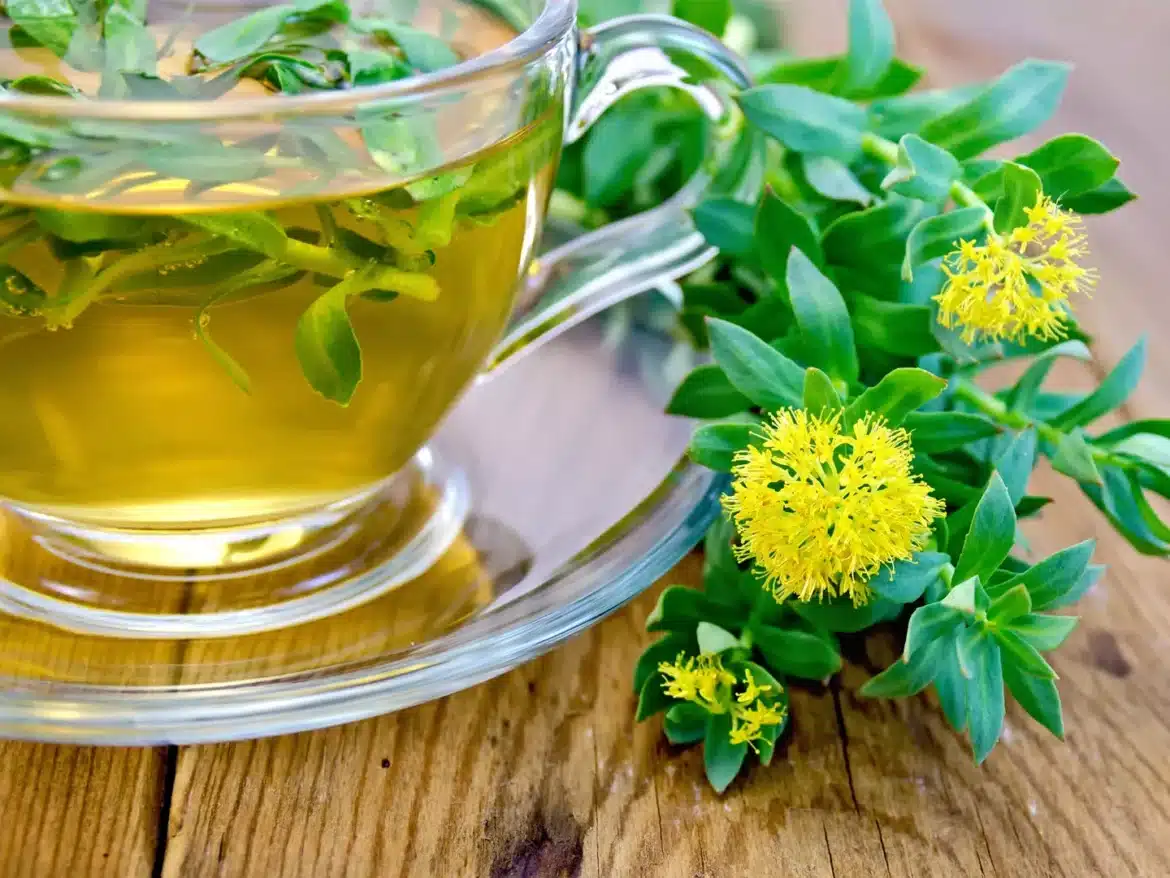Introduction
How Much Rhodiola For Weight Loss: Rhodiola rosea, a flowering plant native to the mountainous regions of Asia, Europe, and North America, has a long history of traditional use in various cultures for its purported health benefits. This adaptogenic herb, often referred to simply as Rhodiola, has recently garnered considerable interest due to its potential impact on weight loss. To unravel the mystery surrounding Rhodiola’s potential as a weight loss aid, it is essential to embark on a journey through the annals of its history, delve into the scientific research that underpins its reputation, and explore the dosages for achieving the desired outcomes.
Rhodiola’s role in weight management but also empower individuals seeking a healthier and more balanced lifestyle with the knowledge they need to make informed choices. The origins of Rhodiola rosea, tracing its cultural significance and traditional uses. We will also scrutinize the scientific evidence that has piqued the curiosity of researchers and health enthusiasts alike, shedding light on how Rhodiola may influence weight loss and related factors.
We will investigate the varying dosages of Rhodiola for weight loss, considering the factors that influence its effectiveness and safety. Understanding the optimal intake of Rhodiola is pivotal, as it can mean the difference between harnessing its potential benefits and experiencing negligible results. Join us on this enlightening journey as we embark on an exploration of Rhodiola rosea, unraveling its secrets and demystifying its role in the pursuit of weight loss. By the end of this journey, you will be armed with the knowledge needed to determine how much Rhodiola may be suitable for your personal weight management goals and whether it can indeed be a valuable addition to your wellness regimen.

How many mg of rhodiola for weight loss?
Some studies suggest that doses as low as 200 mg may be effective, while other research on the effects of rhodiola on various physical and mental health conditions, such as fatigue and cognitive function, have shown that higher doses up to 600 mg could provide more significant benefits.
Determining the appropriate dosage of Rhodiola for weight loss can be somewhat challenging because individual responses may vary. Factors like age, weight, and overall health can influence the ideal dosage. However, a general starting point for Rhodiola supplementation is in the range of 200-600 milligrams per day.
Rhodiola Extract Strength: Rhodiola supplements come in various strengths, typically standardized to contain a specific percentage of rosavins and salidroside. Start with a product that contains 3% rosavins and 1% salidroside, and adjust as needed.
Starting Dose: Begin with a lower dose, around 200 milligrams per day, to assess how your body responds. Pay attention to any side effects or changes in your energy levels, mood, or appetite.
Gradual Increase: If you don’t experience any adverse effects and believe Rhodiola is benefiting you, consider gradually increasing the dose, up to a maximum of 600 milligrams per day.
Consult a Healthcare Professional: It’s crucial to consult with a healthcare professional before starting any new supplement regimen, especially if you have underlying health conditions or are taking other medications. They can provide personalized guidance based on your specific needs.
Can rhodiola make you lose weight?
Rhodiola Rosea is not proficient in helping with weight loss. The herb can decrease your body’s rating of perceived exertion. Rhodiola Rosea provides other health benefits like reduced in stress and fatigue.
Stress Reduction: Rhodiola is known to modulate the body’s stress response by reducing the levels of stress hormones like cortisol. Elevated cortisol levels are associated with weight gain, particularly around the abdominal area.
Appetite Regulation: Some studies suggest that Rhodiola may influence neurotransmitters like serotonin and neuropeptide Y, which play a role in appetite regulation. By potentially curbing appetite, Rhodiola may assist in controlling caloric intake and promoting weight loss.
Enhanced Energy and Physical Performance: Rhodiola has been reported to improve physical endurance and reduce fatigue. Increased energy levels and improved exercise performance can contribute to a more active lifestyle, aiding in weight management.
Metabolic Effects: Research indicates that Rhodiola may influence certain metabolic pathways, potentially enhancing the body’s ability to burn calories and fat. However, further research is needed to fully understand these effects.
Is 500 mg of rhodiola too much?
Amounts and Dosage
The safest maximum dose of rhodiola is 600 mgs per day.
Individual Tolerance: People may react differently to Rhodiola, and while 500 mg might be suitable for one person, it could be too much for another. It is advisable to start with a lower dose (around 200 mg) to gauge your body’s response.
Product Strength: The concentration of active compounds in Rhodiola supplements can vary significantly. Some products may contain higher percentages of rosavins and salidroside than others. Therefore, a 500 mg dose of one product may not be equivalent to the same dose of another product with different potency.
Health Conditions: If you have underlying health conditions or are taking other medications, it’s crucial to consult with a healthcare professional before using Rhodiola or any supplement. They can provide personalized guidance on the appropriate dosage and potential interactions.
Specific Goals: The reason for taking Rhodiola can also influence the dosage. If you are using it primarily for stress reduction or energy enhancement, a lower dose may be sufficient. However, if you are looking for more pronounced effects, such as support for athletic performance, a higher dose might be considered.
Duration of Use: It’s not to use Rhodiola or any supplement at high doses for extended periods without medical supervision. Short-term usage for specific purposes may differ from long-term, daily supplementation.
How much rhodiola should I take a day?
“Generally, the dose of rhodiola extract is between 200 to 600 mg per day, taken in one to two divided doses.” As the ABC explains, small to medium doses tend to have mentally stimulating effects, while larger ones may have more sedative ones.
Standardized Extract Strength: Rhodiola supplements often indicate the percentage of rosavins and salidroside. Standardized extracts typically range from 1-3% rosavins and 0.8-1% salidroside. Higher percentages may require lower overall dosages to achieve the desired effects.
Health Goals: The appropriate dosage can vary based on the reason for taking Rhodiola. If you’re looking for stress reduction, cognitive enhancement, or increased energy, your ideal dose may differ.
Individual Sensitivity: People can have varying sensitivities to supplements. Some individuals might respond well to lower doses, while others may require higher amounts to experience the benefits.
Body Weight and Age: Generally, larger individuals may need a slightly higher dose compared to smaller individuals. Age can also be a factor, as older adults might require a different dosage for optimal effects.
Does rhodiola reduce belly fat?
Rhodiola’s most active compound, rosavin, has been shown to trigger a fat-burning response. Because it helps normalize cortisol levels, rhodiola may also reduce cravings for unhealthy “comfort foods” and delay fat-accumulation that is tied to high cortisol levels (especially fat around the abdomen/belly).
Stress Reduction: Rhodiola is known for its adaptogenic properties, which can help mitigate the effects of stress. High stress levels can lead to increased cortisol production, which, in turn, is associated with abdominal fat storage. By reducing stress, Rhodiola may indirectly support a reduction in belly fat.
Energy and Physical Performance: Some individuals report increased energy and improved physical performance when taking Rhodiola. These effects may encourage more active lifestyles, including regular exercise, which can aid in fat loss, including belly fat.
Appetite Regulation: Rhodiola has been suggested to influence neurotransmitters associated with appetite regulation. By potentially curbing appetite, it may help control caloric intake and contribute to fat loss.
Metabolic Effects: While research is ongoing, some studies have suggested that Rhodiola may influence metabolic processes that impact fat oxidation and overall body composition.
Which is better for weight loss rhodiola or ashwagandha?
Some studies suggest that Ashwagandha may regulate cortisol levels, while Rhodiola may impact appetite and cravings through neurotransmitter balance. However, they should be seen as part of a holistic approach to weight management that includes a balanced diet, exercise, and lifestyle changes.
Stress Reduction
Both Rhodiola and Ashwagandha are recognized for their stress-reducing properties, which could indirectly benefit weight loss. High stress levels can lead to overeating and weight gain.
While Rhodiola may provide more immediate energy and alertness, Ashwagandha’s calming effects may help reduce emotional eating.
Energy Levels
Rhodiola is often associated with increased energy and reduced fatigue. This may encourage physical activity and support a more active lifestyle, contributing to weight management.
Ashwagandha’s energy-boosting effects are generally more subtle and may not be as pronounced as those of Rhodiola.
Appetite Regulation
Some studies suggest that both herbs may influence neurotransmitters related to appetite regulation. Rhodiola may have a more direct impact on appetite suppression, potentially helping with portion control.
Ashwagandha’s appetite-regulating effects are generally milder but could help reduce stress-induced cravings.
Metabolic Effects
While research on Rhodiola’s metabolic effects is limited, some studies have suggested potential benefits for fat metabolism and overall body composition.
Ashwagandha has been studied for its potential to regulate blood sugar levels, which could indirectly impact weight management.
Does rhodiola work immediately?
It’s to take rhodiola in doses between 288-680mg to get the most effective anti-fatigue and anti-stress benefits. Upon consumption of rhodiola, it is thought to take effect with 30 minutes with the immediate effects lasting 3-4 hours.
Rhodiola is not typically considered an immediate-impact supplement like caffeine. Its effects may manifest gradually and may become more noticeable over time as it accumulates in the body. While some individuals report feeling increased energy or improved mood shortly after taking Rhodiola, it often takes several days to weeks of consistent use to experience its full benefits.
Increased Energy and Stamina: Many users report a gradual boost in energy levels and improved stamina, which may contribute to enhanced productivity and a more active lifestyle.
Stress Reduction: Rhodiola’s adaptogenic properties may lead to reduced feelings of stress and anxiety, often noticeable after regular use.
Mental Clarity and Focus: Improved cognitive function, including better concentration and mental clarity, is often reported after consistent consumption.
Improved Mood: Rhodiola may have mood-enhancing effects, promoting an overall sense of well-being.
Is 100 mg of rhodiola enough?
Dosing. Rhodiola has most often been used by adults in doses of 100-600 mg by mouth daily for up to 12 weeks. Speak with a healthcare provider to find out what dose might be best for a specific condition.
Sensitivity: If you are particularly sensitive to supplements or are trying Rhodiola for the first time, a lower dose like 100 mg can be a prudent starting point to assess your tolerance.
Subtle Effects: If you are seeking mild stress reduction or general well-being, a lower dose might be sufficient without the need for higher amounts.
Combination with Other Supplements: In some cases, Rhodiola may be taken alongside other supplements, and a lower dose can be used to balance the overall regimen.

Conclusion
First and foremost, Rhodiola’s journey from ancient folklore to modern science showcases its enduring significance in various cultures. Its adaptogenic properties have made it a revered botanical, used historically to combat stress, fatigue, and a range of health concerns. The transition from traditional medicine to scientific scrutiny has allowed researchers to uncover its potential in weight management.
Scientific studies, while promising, do not provide a definitive answer to the exact dosage of Rhodiola required for weight loss. The research is still evolving, and individual responses may vary. However, the evidence thus far suggests that Rhodiola may indirectly support weight loss by addressing stress, fatigue, and mood, factors that can influence eating habits and metabolism. Its ability to enhance physical and mental stamina may also contribute to a more active lifestyle, which is integral to weight management.
When considering Rhodiola rosea as a supplement for weight loss, it is crucial to approach it with a holistic perspective. The dosage may differ among individuals based on their unique health profiles, goals, and tolerance levels. Consulting with a healthcare professional or a qualified herbalist can provide personalized guidance to ensure safe and effective usage. Incorporating Rhodiola into one’s wellness routine should not be viewed as a standalone solution for weight loss. Instead, it can be a valuable component of a comprehensive approach that includes a balanced diet, regular physical activity, and stress management. By addressing the multifaceted nature of weight management, individuals can enhance their chances of achieving sustainable and long-term results.


3 comments
… [Trackback]
[…] Find More to that Topic: thefitnessblogger.com/how-much-rhodiola-for-weight-loss/ […]
… [Trackback]
[…] There you can find 15669 additional Information to that Topic: thefitnessblogger.com/how-much-rhodiola-for-weight-loss/ […]
… [Trackback]
[…] Find More to that Topic: thefitnessblogger.com/how-much-rhodiola-for-weight-loss/ […]